品香园家常菜(餐饮店)订餐系统的设计与实现(VUE,SSM,MySQL)(含录像)
无需注册登录,支付后按照提示操作即可获取该资料.
品香园家常菜(餐饮店)订餐系统的设计与实现(VUE,SSM,MySQL)(含录像)(论文说明书12900字,程序代码,MySQL数据库)
摘 要
科技进步的飞速发展引起人们日常生活的巨大变化,电子信息技术的飞速发展使得电子信息技术的各个领域的应用水平得到普及和应用。信息时代的到来已成为不可阻挡的时尚潮流,人类发展的历史正进入一个新时代。现代社会越来越多的人追求便捷订餐,购买各种各类的菜品已经是人们生活中不可或缺的一部分,但传统的订餐模式已经不能满足人们的需要,因此借用信息化的手段发展订餐具有十分重要的现实意义。该软件的问题类型是品香园家常菜订餐系统的开发和设计。它设计用于电子商务行业中订单信息内容的管理方法,目的是更改当前的手动或半手动销售管理机制,让订单管理更加规范,标准化,工作效率得到提高。
品香园家常菜订餐系统基于Eclipse开发平台,采用JAVA编程语言和SSM、Servlet等技术,采用MySQL数据库来建立数据之间的转换,主要实现了注册、登录、查询菜品信息、菜品订餐、结账、订单管理等功能,为买家和商家建立了一套科学有效的管理流程,减少了传统订餐出现的失误,同时也方便了人们进行订餐。本系统界面简洁,使用人员可以迅速掌握,有效的提高了工作效率。
关键词:电子商务;Eclipse代码编辑器;MySQL数据库;交易
Abstract
The rapid development of scientific and technological progress has caused great changes in People's Daily life. The rapid development of electronic information technology makes the application level of electronic information technology in various fields popularized and applied. The arrival of the information age has become an unstoppable fashion trend, and the history of human development is entering a new era. In modern society, more and more people pursue convenient ordering, and buying various kinds of dishes has become an indispensable part of people's life. However, the traditional ordering mode can no longer meet people's needs. Therefore, it is of great practical significance to develop ordering tableware by means of information technology. The problem type of the software is the development and design of the hotel catering management system. It is designed for the electronic commerce industry order information content management method, the purpose is to change the current manual or semi-manual sales management mechanism, so that order management more standard, standardization, work efficiency has been improved.
Hotel catering management system based on the Eclipse development platform, using JAVA programming language and SSM, Servlet and other technologies, the use of MySQL database to establish data conversion, mainly to achieve the registration, login, query food information, food ordering, checkout, order management and other functions. For buyers and businesses to establish a scientific and effective management process, reduce the mistakes of traditional ordering, but also convenient for people to order food. The system interface is simple, users can quickly grasp, effectively improve the work efficiency.
Key words:E-commerce; Eclipse code editor; MySQL database; trading
本系统具有的前台功能包括以下各项:
1.用户注册登录:用户进行注册,登录。
2.菜品浏览:以列表方式显示菜品信息或者可以查看热门菜品和优惠菜品。
3.菜品搜索:用户可以通过关键字或者菜品类目进行查询,尽快的找到自己喜欢的菜品。
4.订餐车:这是品香园家常菜订餐系统最根本组成。客户在寻找自己喜欢的菜品时,可以将其添加到订餐车中,然后再次查询其他菜品。
5.个人订单:客户选择要购买的菜品,填写餐桌,提交订餐订单,然后在线付款,付款可以通过支付宝、微信或者银联等方式付款。
本系统具有的后台功能包括以下各项:
1.用户管理:显示所有注册用户的信息,并进行修改、删除等操作。
2.菜品管理:用户下订单订餐,由管理员定期负责处理,根据订单信息给相应的餐桌送菜。
3.订单管理系统:查看订单状态,升级订单信息付款,升级交货状态并删除订单信息,并解决客户订单信息并交付给客户,向用户送菜。
开发语言:JAVA
框架:SSM
服务器:tomcat
数据库:mysql
数据库工具:Navicat
开发软件:eclipse/myeclipse/idea
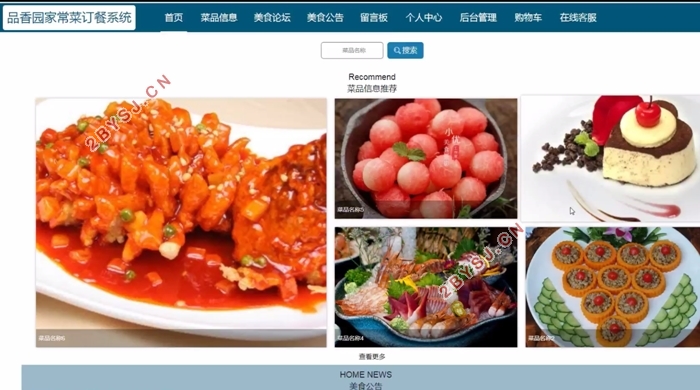
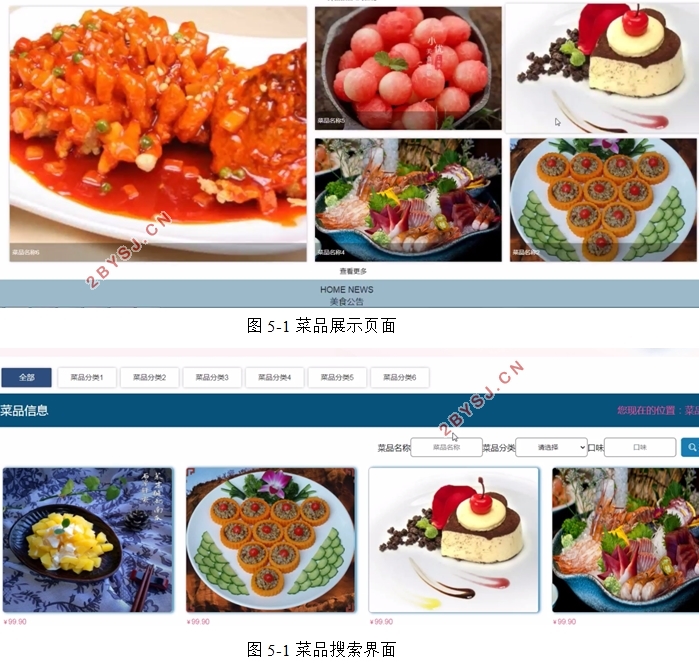
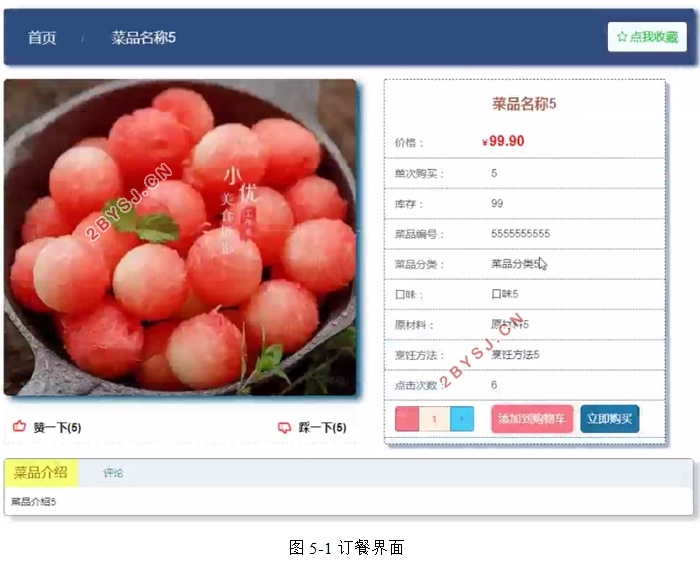
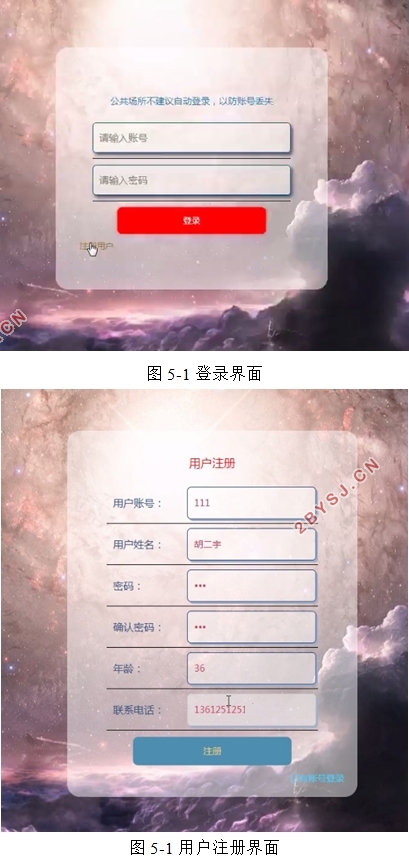
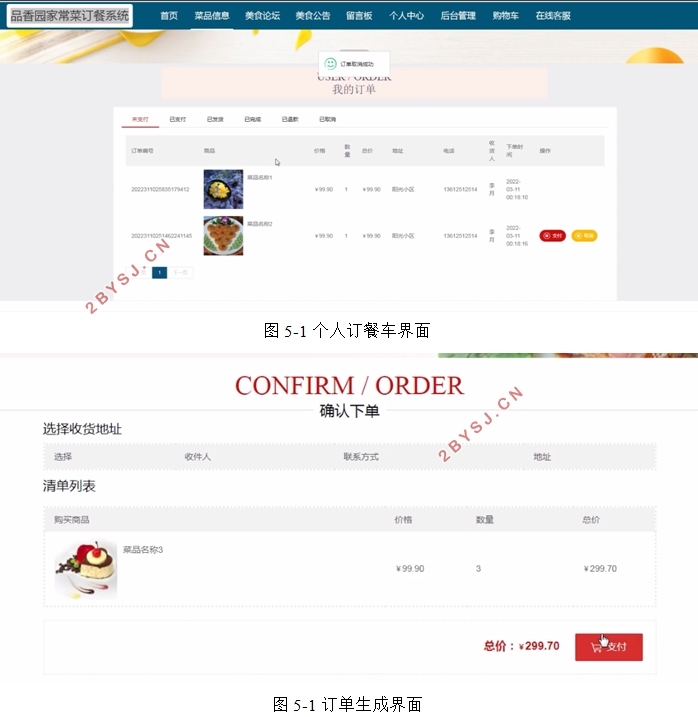
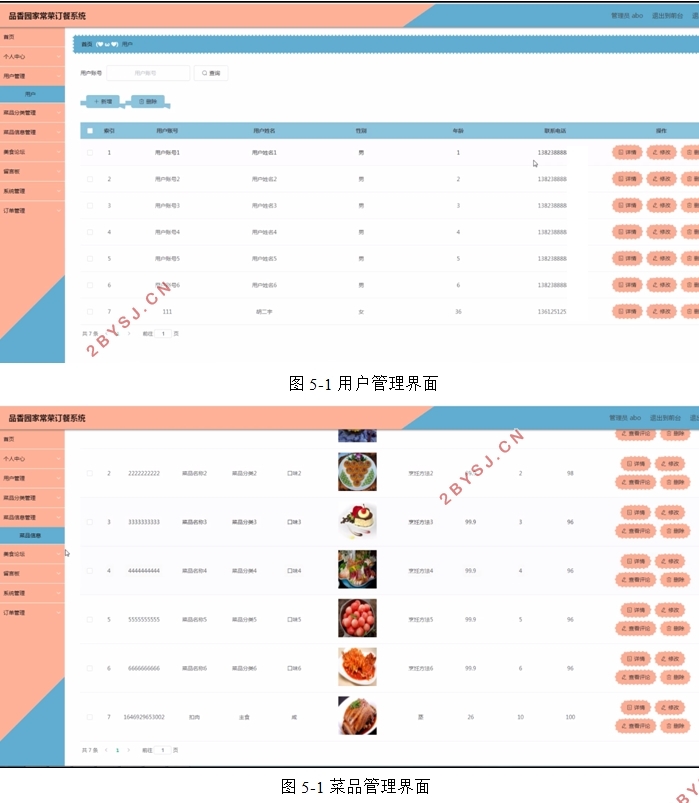
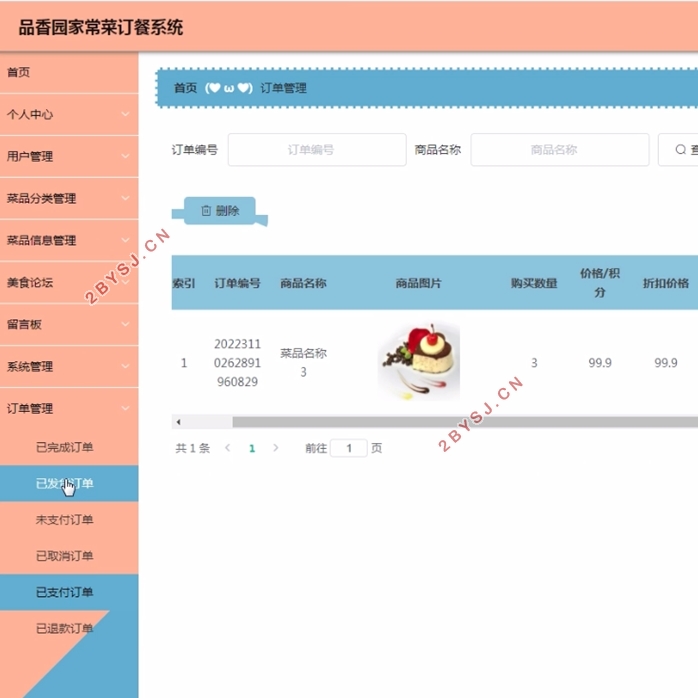
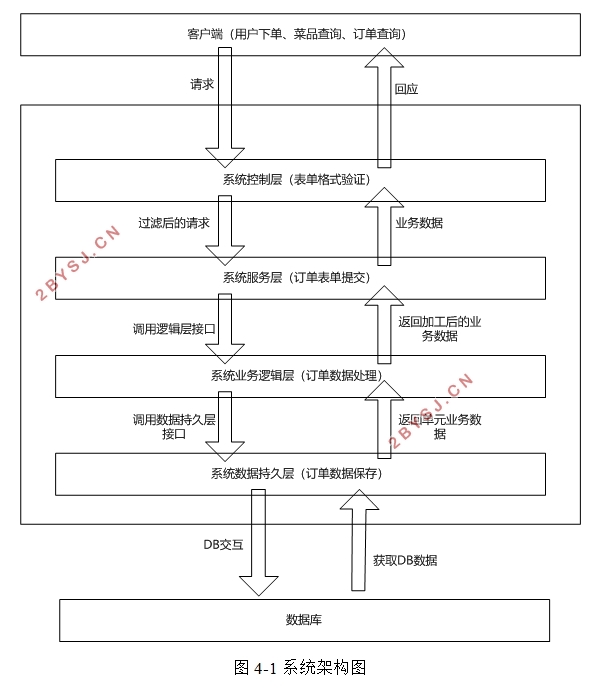
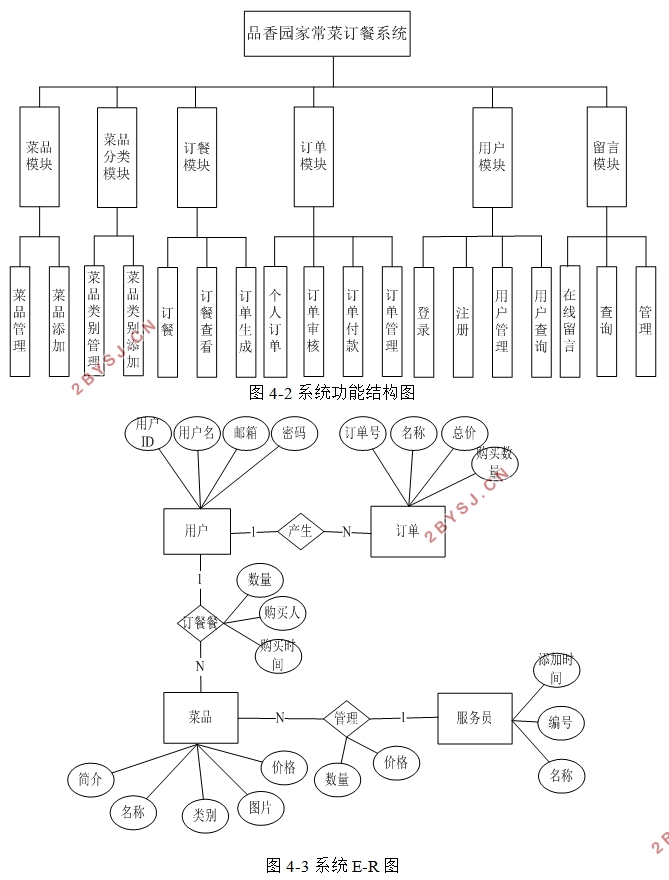
目 录
第1章 绪论 1
1.1 研究背景 1
1.2 开发现状 1
1.3 论文组成结构 1
第2章 开发工具及相关技术介绍 3
2.1 JSP开发语言 3
2.2 Servlet开发技术 3
2.3 MySQL数据库 3
2.4 JSON概述 4
2.5 Tomcat概述 4
第3章 系统分析 6
3.1 可行性分析 6
3.1.1 经济可行性 6
3.1.2 技术可行性 6
3.1.3 操作可行性 6
3.2 功能性需求分析 6
3.3 非功能性需求分析 9
3.4 业务流程分析 9
第4章 系统设计 11
4.1 系统架构设计 11
4.2 功能模块设计 12
4.3 数据库设计 14
4.3.1 概念模型设计 14
4.3.2 数据库逻辑设计 14
4.3.3 数据库表设计 15
第5章 系统实现 17
5.1 用户登录的实现 17
5.2 系统前台主要功能实现 18
5.2.1 首页的实现 18
5.2.2 用户注册的实现 18
5.2.3 菜品展示的实现 19
5.2.4 菜品搜索的实现 21
5.2.5 订餐的实现 21
5.2.6 订单生成的实现 22
5.3 系统后台主要功能实现 23
5.3.1 用户管理的实现 23
5.3.2 菜品管理的实现 25
5.3.3 订单管理的实现 26
第6章 系统测试 29
6.1 软件测试的概念 29
6.2 软件测试过程 29
6.3 系统测试阶段 30
6.4 测试结果 30
第7章 总结与展望 31
参考文献 32
致谢 34
